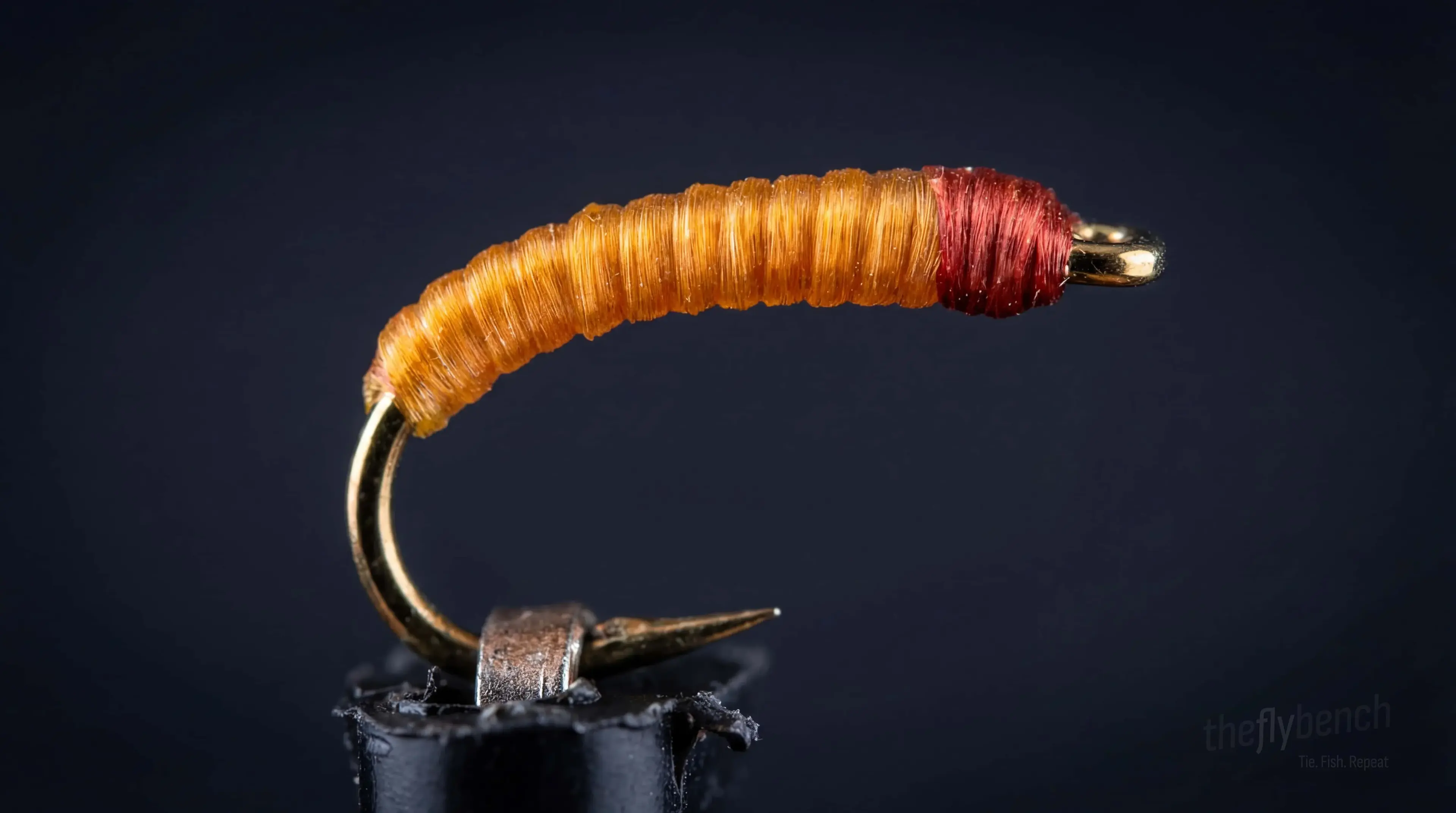NymphChimarra Caddis Larva
The Chimarra Caddis Larva imitates the tiny reddish-brown caddis larvae that are a significant source of food for trout throughout the year. This pattern is particularly effective during the early spring when these larvae become more active and are often dislodged from their rock homes.
Spring
Beginner
Trout

Overview
This pattern imitates the small, dark caddis larvae of the Chimarra genus, often called little black caddis. It's tied with a black or dark brown thread body, fine wire ribbing for segmentation, and a sparse dubbed thorax. A dark bead or thread head completes the compact silhouette. It's ideal for nymph rigs in spring and early summer when these larvae are most active.
Pattern Characteristics
Materials
Hook: 2X-short emerger hook (here a Dai-Riki 125), sizes 16-20
Thread & Underbody: 6/0 or 140 Denier, orange
Body: Uni-Flex, yellow
Head: 6/0 brown
Fishing Tips
Season
Early spring when caddis larvae become more active.
Presentation
Dead drift near the bottom to imitate a dislodged larva.
When to Use
When you observe trout feeding near the bottom, as they may be feeding on caddis larvae.
Water Type
Best in moving water.
Rigging Suggestions
Use a strike indicator to detect subtle takes.
Visibility & Floatation
The Chimarra Caddis Larva is designed to sink and stay near the bottom. The Solarez Bone Dry UV resin shell not only gives the fly a realistic appearance but also adds some weight, helping it sink to the bottom.





